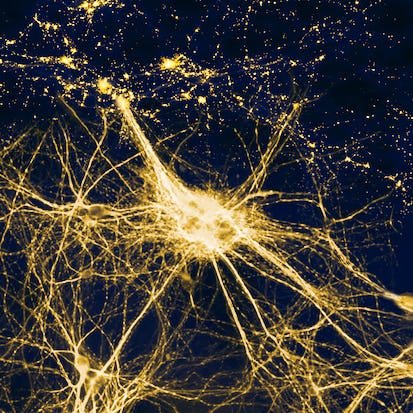- Level Foundation
- المدة 21 ساعات hours
- الطبع بواسطة The University of Edinburgh
-
Offered by

عن
It’s clear that the world needs more intellectual humility. But how do we develop this virtue? And why do so many people still end up so arrogant? Do our own biases hold us back from becoming as intellectually humble as we could be—and are there some biases that actually make us more likely to be humble? Which cognitive dispositions and personality traits give people an edge at being more intellectually humble - and are they stable from birth, learned habits, or something in between? And what can contemporary research on the emotions tell us about encouraging intellectual humility in ourselves and others? Experts in psychology, philosophy and education are conducting exciting new research on these questions, and the results have important, real-world applications. Faced with difficult questions people often tend to dismiss and marginalize dissent. Political and moral disagreements can be incredibly polarizing, and sometimes even dangerous. And whether it’s Christian fundamentalism, Islamic extremism, or militant atheism, religious dialogue remains tinted by arrogance, dogma, and ignorance. The world needs more people who are sensitive to reasons both for and against their beliefs, and are willing to consider the possibility that their political, religious and moral beliefs might be mistaken. The world needs more intellectual humility. In this course, we will examine the following major questions about the science of intellectual humility: • How do we become intellectually humble? • What can human cognition tell us about intellectual humility? • How does arrogance develop, and how can we become more open-minded? • How do emotions affect our ability to be intellectually humble? All lectures are delivered by leading specialists, and the course is organised around a number of interesting readings and practical assignments which will help you address issues related to humility in your daily life. This course can be taken as a part of a series which explores the theory, the science and the applied issues surrounding intellectual humility. In the previous course on the theory behind intellectual humility, we considered how to define intellectual humility, the nature of an intellectual virtue, and how we know who is intellectually humble. If you are interested, complete all three courses to gain a broader understanding of this fascinating topic. Look for: • Intellectual Humility: Theory - https://www.coursera.org/learn/intellectual-humility-theory • Intellectual Humility: Practice - https://www.coursera.org/learn/intellectual-humility-practiceالوحدات
The following materials will introduce you to this course and help you prepare.
1
Discussions
- Get to know your classmates
1
Videos
- Trailer - Intellectual Humility: Science
2
Readings
- About this course
- Course assessments and exercises
Introduction to the module
1
Assignment
- Initial thoughts
1
Videos
- Ian introduces Module 1
1
Readings
- Before you begin...
LEARN: How do we become intellectually humble? (Dr Cristine Legare)
3
Assignment
- Practice Quiz
- Module Quiz
- Back to school
4
Videos
- Introduction
- Learning and explanation
- Inconsistency, explanation and belief revision
- Implications for child education
ENGAGE: Readings and Discussions
1
Assignment
- Reading quiz on "How Do We Develop and Maintain Humility?" by Bob Roberts
4
Discussions
- Do your experiences support the claim that we need a balance of the two drives of confirmation bias and discovery?
- Do you learn more when you explain events as opposed to just receiving feedback about the accuracy of your predictions?
- Can you think of other experiments that would test Dr. Legare's hypothesis?
- What kinds of contexts and information do you find motivate children to revise their beliefs?
3
Readings
- Optional companion book
- "How Do We Become Intellectually Humble?" by Ian Church & Peter Samuelson (recommended)
- "How Do We Develop and Maintain Humility?" by Bob Roberts (recommended)
GO FURTHER
1
Readings
- "Confirmation Bias: A Ubiquitous Phenomenon in Many Guises" by Raymond S. Nickerson (further reading)
Introduction to the module
1
Videos
- Ian introduces Module 2
LEARN: What can human cognition tell us about intellectual humility? (Professor Frank Keil)
5
Assignment
- Rose-coloured biases in action
- Practice Quiz
- Examples of biases
- More examples of biases
- Module Quiz
6
Videos
- Introduction
- Humility, arrogance, and base rate neglect
- Developmental over-optimism
- The illusion of explanatory depth
- Illusions of argument justification and insight
- Illusions of the outsourced mind
ENGAGE: Readings and Discussions
1
Assignment
- Reading quiz on "What Can Human Cognition Tell Us About Intellectual Humility?" by Ian Church and Peter Samuelson
5
Discussions
- How could Professor Keil's model be expanded or adapted to include intellectual servility?
- Can you think of any other effective ways to test the illusion of explanatory depth?
- How should we combat reach-around effects?
- Does the Internet make us more humble, or more arrogant?
- How can we reduce intellectual arrogance without making people feel terrible about what they know?
2
Readings
- "What Can Human Cognition Tell Us About Intellectual Humility?" by Ian Church & Peter Samuelson (recommended)
- "Searching for Explanations: How the Internet Inflates Estimates of Internal Knowledge" by Matthew Fisher et al. (recommended)
GO FURTHER
4
Readings
- "The Illusion of Argument Justification" by Matthew Fisher and Frank Keil (further reading)
- "Overestimation of Knowledge About Word Meanings: The 'Misplaced Meaning' Effect" by Jonathan Kominsky and Frank Keil (further reading)
- "The Misunderstood Limits of Folk Science: An Illusion of Explanatory Depth" by Leonid Rozenblit and Frank Keil (further reading)
- "Overoptimism about future knowledge: Early Arrogance?" by Lockhart et al. (further reading)
Introduction to the module
1
Assignment
- Initial thoughts
1
Videos
- Ian introduces Module 3
LEARN: Humility and the science of open-mindedness (Professor Victor Ottati)
4
Assignment
- Untenable messages
- Practice Quiz
- Module Quiz
- Open-mindedness in public discourse and life
8
Videos
- Open-minded cognition
- Open-minded cognition: relations with other constructs
- The flexible merit standard model
- Message tenability effect
- The reciprocal nature of open-minded cognition
- The earned dogmatism effect
- The attitude justification effect
- Concluding remarks
ENGAGE: Readings and Discussions
1
Assignment
- Reading quiz on "Are Some People Born Humble?" by Ian Church and Peter Samuelson
4
Discussions
- How should we reduce stereotyping and prejudice?
- Is it surprising that Ottati's research found older people are not more dogmatic?
- How can we improve the impact that education has on cultivating open-mindedness?
- Can you think of an example of a situation in which open-mindedness does not seem virtuous or desirable?
2
Readings
- "Are Some People Born Humble?" by Ian Church and Peter Samuelson (recommended)
- The Big 5 Personality Test
GO FURTHER
1
Readings
- "When Self-Perceptions of Expertise Increase Closed-Minded Cognition: The Earned Dogmatism Effect" by Ottati et al. (further reading)
Introduction to the module
1
Assignment
- Quiz: Initial thoughts
1
Videos
- Ian introduces Module 4
LEARN: How do emotions affect our ability to be intellectually humble? (Professor Vasu Reddy)
3
Assignment
- Practice Quiz
- Deceptive self-justification
- Module Quiz
7
Videos
- Why not intellectualise?
- Towards engagement: seeing the other as a person
- Towards engagement: being involved
- Towards engagement: not focusing on the self
- Towards engagement: Dialogue, value and difference
- An exploratory study
- Conclusions
1
Readings
- Before you finish...
ENGAGE: Readings and Discussions
1
Assignment
- Reading quiz on "How Do Emotions Affect Our Ability to Be Intellectually Humble?" by Ian Church and Peter Samuelson
4
Discussions
- Evaluate this quote: “Moral emotions and intuitions drive moral reasoning, just as surely as a dog wags its tail.”
- Reddy says the starting point for dialogue is difference, not similarity. Do you agree?
- What do you think of Professor Reddy's exploratory study? Do you see any limitations, or particular strong points?
- Do you have further thoughts to add to Professor Reddy's discussion of how engagement and humility relate?
1
Readings
- "How Do Emotions Affect Our Ability to Be Intellectually Humble?" by Ian Church and Peter Samuelson (recommended)
GO FURTHER
1
Readings
- "The role of emotional engagement in lecturer-student interaction and the impact on academic outcomes of student achievement and learning" by Vathsala Sagayadevan and Senthu Jeyaraj (further reading)
ENGAGE: Spot the bias
1
Peer Review
- Identify a bias in the news and say what it is doing
GO FURTHER: Wikipedia Edit-a-thon!
1
Discussions
- Wikipedia Edit-a-thon discussions
2
Readings
- Show what you learned by editing the Wikipedia entry on intellectual humility!
- A brief How-To
Interested? Would you like to learn more about this topic? Check out the other courses in the Intellectual Humility series!
2
Readings
- TRAILER: Intellectual Humility: Theory
- TRAILER: Intellectual Humility: Practice
Survey
1
Readings
- Post-Course Survey
Auto Summary
Dive into "Intellectual Humility: Science," a foundation-level course in Health & Fitness offered by Coursera. Led by experts in psychology, philosophy, and education, this course explores how to cultivate intellectual humility, understand cognitive biases, and develop open-mindedness. Through engaging lectures, readings, and practical assignments, learners will uncover the science behind humility and its real-world applications. Ideal for those interested in personal growth and reducing societal polarization, this 1260-minute course is available through Starter and Professional subscription options. Join us to enhance your intellectual virtues and embrace a more humble perspective.

Dr. Ian Church

Professor Duncan Pritchard

Dr. Emma Gordon


